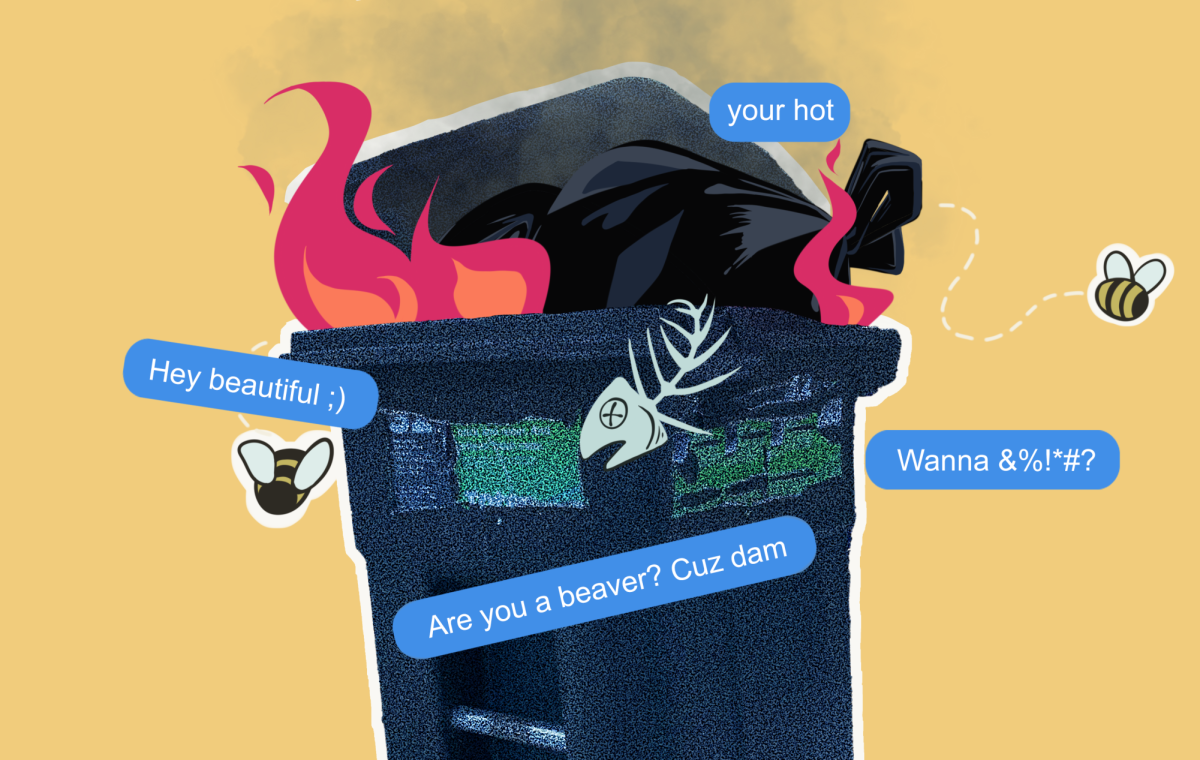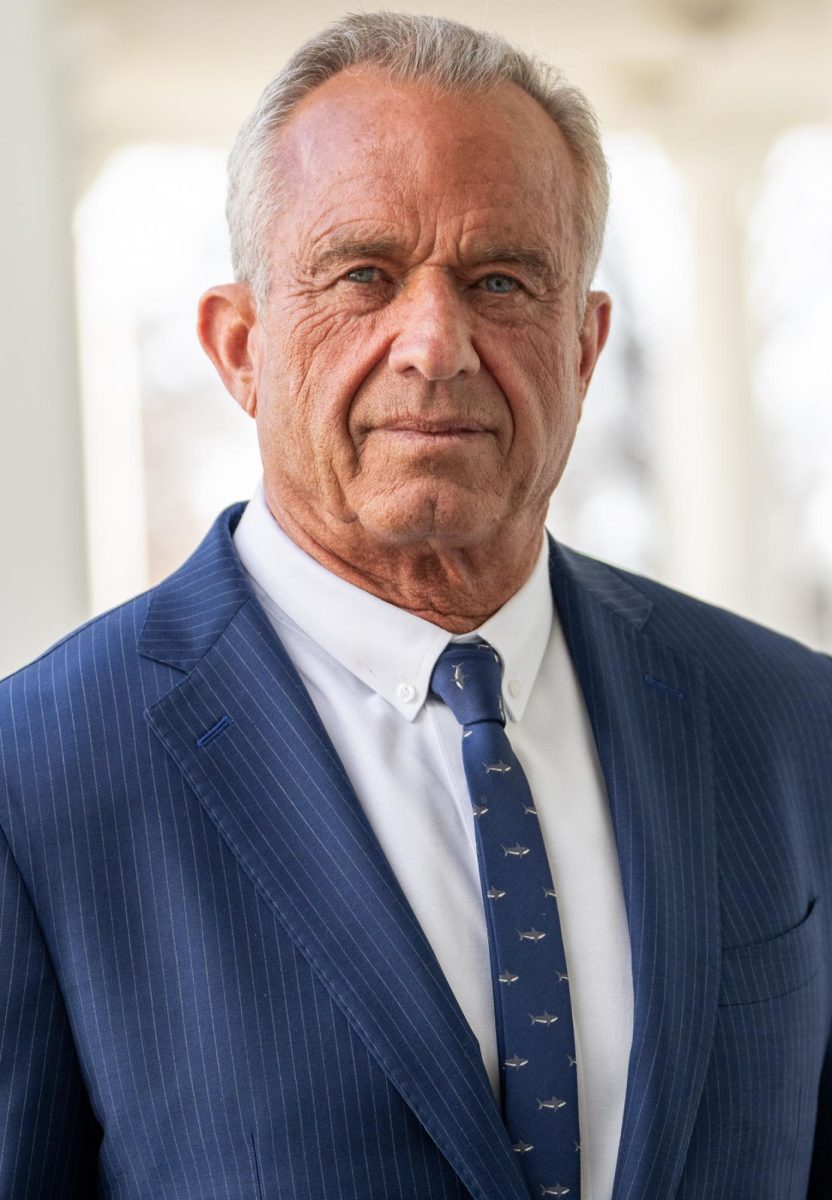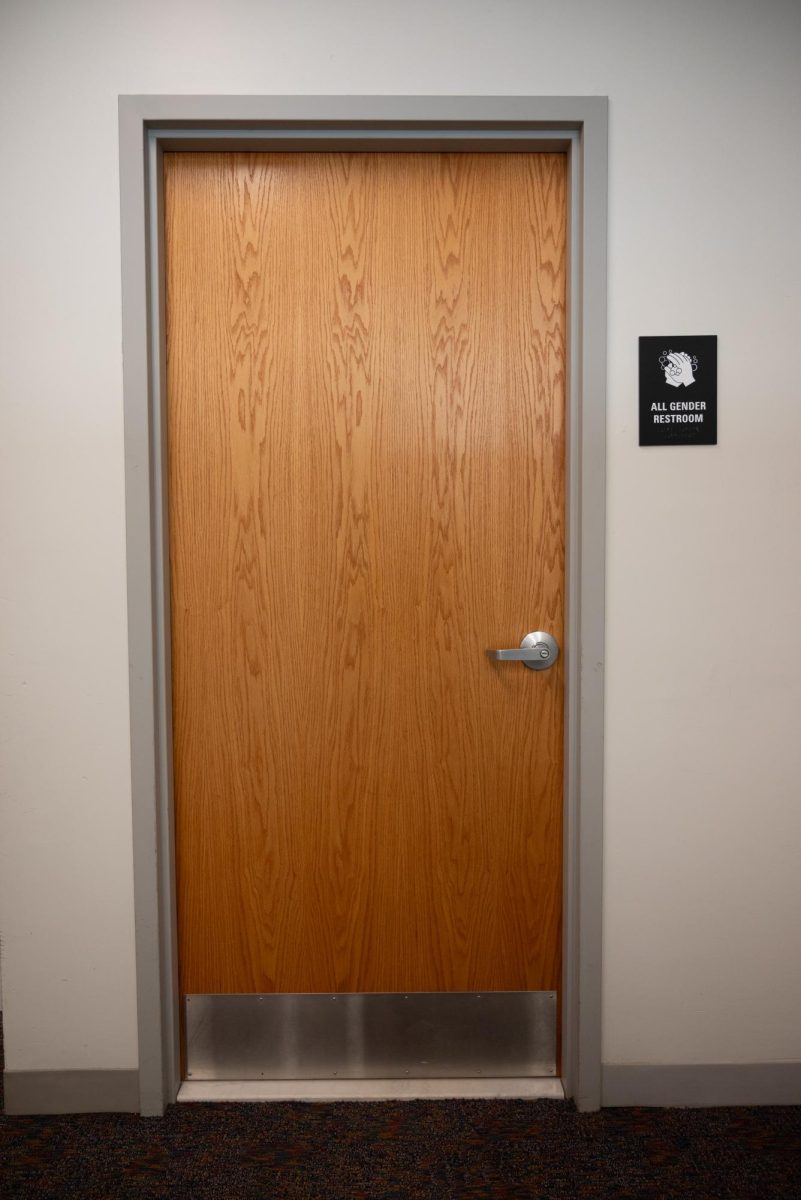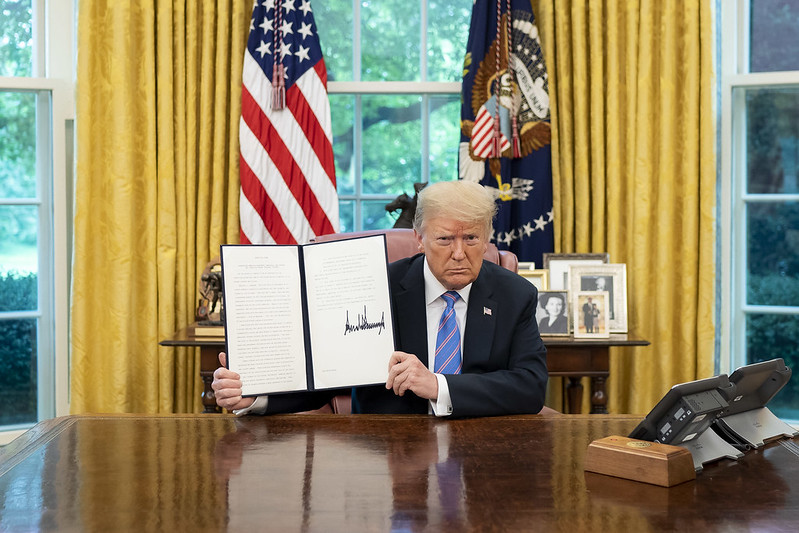After the past issue of The News, many students are aware of the new art exhibit in International Village. If you don’t know about it, we encourage you to go check it out. President Barack Obama declared October National Arts and Humanities Month with the intention of “supporting expression that challenges our assumptions, sparks our curiosity, and continues to drive us toward a more perfect union.” We find this month’s theme to be strikingly appropriate for what the discourse has been this past week in our community at Northeastern.
The exhibit features a number of pieces inspired by the increased role of graphic design in today’s political culture. The pieces comment on the unique challenges facing today’s America. The university acknowledges that “some may be controversial in their content or in their form. All are meant as a starting point for discussion, which aligns with the mission of a university committed to a vigorous exchange of ideas.” The center of controversy surrounding this exhibit is a piece that displays two American flags – one with only blue remaining on the flag, the other one with the colors red and white remaining on the flag. Some have called this piece “flag desecration” and have called for it to be taken down citing flag code and some going as far as to call it unpatriotic and anti-American.
In the cases of Texas v. Johnson (1989) and United States v. Eichman (1990) the Supreme Court has protected symbolic speech that involves a flag. In Texas v. Johnson the court ruled that flag burning was protected speech, while in US v. Eichman the court ruled that flag desecration is also protected under the First Amendment to the United States Constitution.
Why should Northeastern University, in the words of Justice William J. Brennan, “prohibit the expression of an idea simply because society finds the idea itself offensive or disagreeable?”
The answer to that question is that Northeastern should permit the expression of art that is controversial, and we’re glad that they are doing just that. Although Northeastern University is not a government entity, we should work to apply Justice Brennan’s thoughts on freedom of expression universally. An important aspect of the education we receive here, and one of the main reasons many of us chose to attend Northeastern, is the value this university places on diverse perspectives. American soldiers have fought all over the world to secure our freedoms and liberty; free speech should not be limited due to an idea or piece of art that challenges us to question our beliefs.
The renowned philosopher Voltaire once said, “I disapprove of what you say, but I will defend to the death your right to say it.” As college students, professors and administrators, we, the Northeastern community, have an obligation to uphold this legacy and challenge ourselves and others to engage in thoughtful civil discourse whenever possible despite initial difficulties broaching pivotal or controversial topics.
We are grateful that we live in a country that cherishes free speech in the arts. Art stems from the need to express one’s self outside of the societal norm. Democracy and expressionist art have developed and flourished in a partnership of progress. In countries with stifling governments threatening their citizens with expulsion, violence, and hatred, the first aspects of society to be squandered are the arts and intellectuals. As the seed of democracy grows in authoritative regimes throughout the Middle East, the first civil society movement starts with collective expression.
Syria is currently going through a violent battle against young democracy seekers and the upper divisions of President Assad’s Army. Throughout the past couple of months, Facebook has been used as a tool to express the people’s ideas and emotions towards their country and government. Where expression has been stifled and often met with a firing squad or torture, a country that is knocking at the door of democracy wishes to model its freedom of speech and expression after America’s longstanding open-mindedness and acceptance of differences.
Arts are clearly an important reflection of our national history, culture, and voice; to stifle that voice shows flagrant disrespect for the variety of viewpoints and opinions that have contributed to making this nation the freest place on Earth. American idealism, nationalism and community are not diminished by controversies and discussions like this but are indeed strengthened because it is dissent, dialogue and diversity that make this country great.
-Nicholas Beek is the vice president, and Callaghan Guy is the communications director of Northeastern University College Democrats
The opinions expressed here may not reflect the views of the Democratic National Committee, College Democrats of Massachusetts or College Democrats of America.









